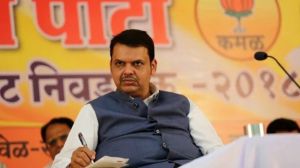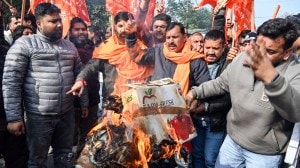After the National Medical Commission notified new guidelines on professional conduct recently, doctors have been protesting one of the stipulations — using generic names of medicines on the prescription instead of a particular brand name.
The Indian Medical Association, the largest body of doctors in the country, said in a statement this was akin to “running trains without tracks.” They said before implementing any policy to meaningfully promote generic medicines, the quality of drugs across manufacturers has to be ensured.

What do the guidelines say?
The guidelines say that doctors can only write the generic names of the medicine on the prescription. For example, a doctor will have to prescribe paracetamol for fever, instead of Dolo or Calpol “Every RMP should prescribe drugs using generic names written legibly,” the guidelines say.
This practice can only be relaxed for medicines with narrow therapeutic index (drugs where a small difference in dosage may lead to adverse outcomes), biosimilars (a different version of biologic products that are manufactured in living systems), and “similar other exceptional cases.”
The guideline says that generic medicines, on average, are 30% to 80% cheaper than the branded versions, and are hence likely to bring down healthcare costs.
What does it mean for you?
The new guidelines do not allow doctors to write a specific brand, which means that you will get whichever medicine with the relevant active ingredient your pharmacist stocks.
Story continues below this ad
“If a pharmacy does not have a generic version of a medicine — which drug stores usually do not stock because of very low profit margins — the responsibility to substitute it with a branded medicine will shift to the pharmacist instead of the doctor. This will promote brands that have good profit margins, irrespective of how good they are,” said Dr Arun Gupta, president of Delhi Medical Council.
Additionally, doctors say it will also take away their choice of prescribing the medicine they think is the best for a patient. Taken in the context of the quality of generics varying across companies, this could result in ineffective treatment.
What are doctors saying?
The main reason for doctors protesting the guidelines is the quality of generic medicines, they say. “The biggest impediment to generic drugs is the uncertainty about its quality. The quality control in the nation being very weak, there’s practically no guarantee of the quality of drugs, and prescribing drugs without assured quality would be detrimental to patient health,” IMA said in its statement.
Dr Sharad Agarwal, IMA president, said: “What happens if a person takes a generic medicine prescribed by me and doesn’t get better, then buys a branded version from the pharmacy and does? It hampers my reputation. What about hospitalised patients? I give them generics and they do not get better. Later, the family would say they could have paid for any medicine, why did I not use it. This will lead to violence.” He also said that the guidelines were notified without consultation with stakeholders.
Story continues below this ad
“IMA demands deferring of this regulation for wider consultations by the Government of India,” the statement from the doctors’ body says.
What are the issues with generic medicines?
Doctors, drug manufacturers, and the government all agree that there is much to be done when it comes to the quality of generic medicines in the country.
While the doctors in the IMA statement said that only 0.1% medicines are tested for quality checks, manufacturers said it is not possible for the government to test every batch, but following good manufacturing practices to the T can assure quality by design.
Many have also questioned the tests that a company needs to do to get approval. Until a few years ago, it was not mandatory for companies making generics to carry out bio-equivalence or stability studies. Bio-equivalence studies are done to show that the generic drug elicits the same response as a branded version. Stability studies are done to see how the quality of the drug varies over a period under specific environmental conditions. Experts from the pharmaceutical sector admit that there are drugs still in the market that never underwent these studies.
Story continues below this ad
Data from the Union health ministry shows that around 3% of all medicines tested over the last three years — including generics, branded generics, and branded medicines — were found to be not of standard quality.








































